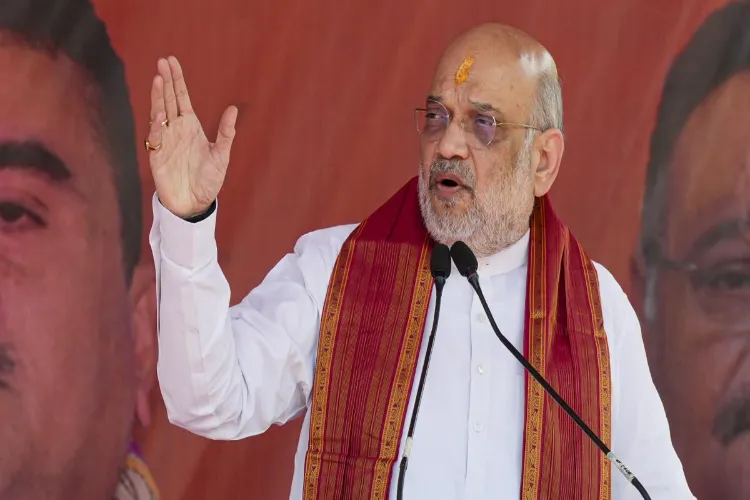
Bastar
Union Home Minister Amit Shah on Saturday said that the government has formulated a "lucrative" surrender policy in its efforts to curb the Naxalite movement in Chhattisgarh.
Addressing the demands to hold talks with the Naxals, Shah said that there was nothing to talk about since the Bhratiya Janata Party (BJP) government in the Centre and Chhattisgarh were dedicated to developing the entire Naxal-affected region, including Bastar.
The Union Home Minister warned against "disrupting the peace" in Bastar and said that the state machinery will respond strongly. He added that March 31, 2026, has been fixed to bid farewell to Naxalism from the soil of this country.
"Some people talk about talks (with Naxals). I want to make it clear once again: both our governments, the Chhattisgarh government and the central government, are dedicated to the development of Bastar and the entire Naxalite region. What is there to talk about? We have formulated a very lucrative surrender policy. Come, lay down your arms. If you take up arms and try to disrupt the peace of Bastar, our armed forces, the CRPF, and the Chhattisgarh police will respond. March 31, 2026, has been fixed to bid farewell to Naxalism from the soil of this country," Shah said while addressing a gathering at the celebrations for Bastar Dussehra here.
Advocating for the call to go Swadeshi, Shah said, "If the 140 crore population embraces the resolve of Swadeshi, no one can stop our India from becoming the world's top economic system. Prime Minister Modi has recently provided a huge relief by reducing GST rates. If we adopt the culture of Swadeshi, our country's economy will gain great momentum."
Shah further appealed to the youth in Bastar to "shun the path of violence" while advising against joining the Naxal movement.
Stating that Naxalism didn't benefit anyone, Shah urged the youth to join the mainstream and assured development works worth Rs one crore for villages that become Naxal-free.
"I wanted to appeal to people to ask the youth, who are misled and join Naxalism, to shun the path of violence and join the mainstream. Once the village is free from the Naxal issue, Rs one crore will be allocated to them for developmental works," Shah said.
He said that Naxalism has not benefited anyone, while informing that the Bharatiya Janata Party (BJP) government has introduced various schemes in honour of Adivasis.
On attending the 75-day-long Bastar Dussehra celebrations, Shah said that the world's longest Dussehra remains an important fair, not merely in Bastar, but in the world. He added that the culture, food and music make Bastar special in the country.
Bastar Dussehra is a unique celebration in India, where Dussehra is observed for 75 days, and the effigy of Ravana is not burnt.
The festival has a history that spans over 600 years, making it one of the oldest and most unique festivals in India. It was initiated by the Kakatiya dynasty and has been preserved and celebrated by the local tribal communities ever since.
The festival is deeply rooted in the spiritual beliefs of the Bastar tribes, who honour Goddess Danteshwari as their protector and guide.
The cultural importance of Bastar Dussehra lies in its ability to unite the diverse tribes of Bastar, showcasing their traditional customs, music, and dance in a grand celebration of devotion.
This unique Dussehra is celebrated in Bastar, a tribal-dominated area of Chhattisgarh, and is known as 'Bastar Dashara'.The fame of 'Bastar Dashara' is nowadays such that tourists from different parts of the country and the world also come to see it.
Bastar Dussehra begins with the greenery of the new moon in the month of Shravan (Savan). On this day, the first wood is brought from the forest to build chariots. This ritual is called Pat Jatra.
ALSO READ: Muslims have no monopoly on Muhammad
This festival runs till Dushara and ends with the ritual of Muria Durbar. In this ritual, the Maharaj Darbar of Bastar listens to the problems of the public. This festival is the most celebrated in the country.
